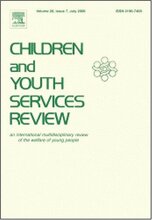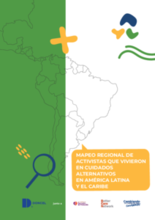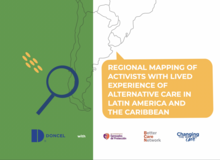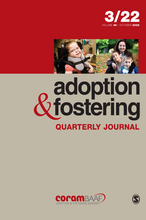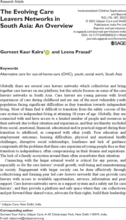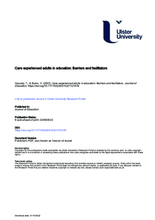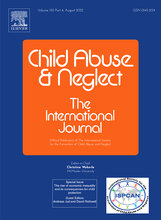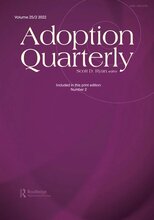Displaying 1 - 10 of 230
This is a systematic review of literature published from 2002 to 2022 to assess the differences in outcomes of children and youth who were adopted out of foster care compared to children and youth in foster care (CYFC) who were in other permanency placements (reunified, aged out, long-term foster care). The review yielded twelve (N = 12) studies from Sweden, the United Kingdom, and the United States.
This U.S.-based study explores how common enduring relationships are among youth making the transition out of care and whether having an enduring relationship improves their outcomes in early adulthood.
Para garantizar que las personas que han vivido en cuidados alternativos puedan participar de los procesos y decisiones para mejorar los sistemas de cuidado, Doncel junto a la Red Latinoamericana de Egresados de Protección, Better Care Network y Cambiando la Forma en Que Cuidamos (Changing The Way We Care en inglés) llevaron adelante el primer mapeo regional de activistas que vivieron en cuidados alternativos en América Latina y el Caribe.
This is the first regional mapping of activists with care experience in Latin America and the Caribbean.
The aim of this study was to investigate the circumstances that contribute to the future anxiety affecting looked after children in Poland as they move to independence.
This article focuses on some of the care leavers networks in South Asia.
This U.K.-based study explored the life experiences of care experienced adults in higher education to understand the factors that impeded or enhanced their journeys.
This U.S. based study systematically summarizes the effectiveness of peer parent programs in child welfare on case outcomes, specifically permanency, time-in-care, and re-entry post reunification.
This paper presents findings from a study on care leavers’ experiences of transitional housing at three institutions in Zimbabwe. Using the social sustainability conceptual framework, the study found that transitional housing offers continuity of care, relationships, and a smoother, gradual transition from care to independence.
Concurrent planning is a process by which all options for permanency are considered simultaneously for children in foster care. Children are placed with caregivers (resource parents) who are open to adoption if reunification with birth parents does not occur. This U.S.-based quantitative study explored resource parents’ perceptions of the concurrent planning process via surveys at two time points. Participants included resource parents of 77 infants assessed at 2 months and 1 year after placement.

